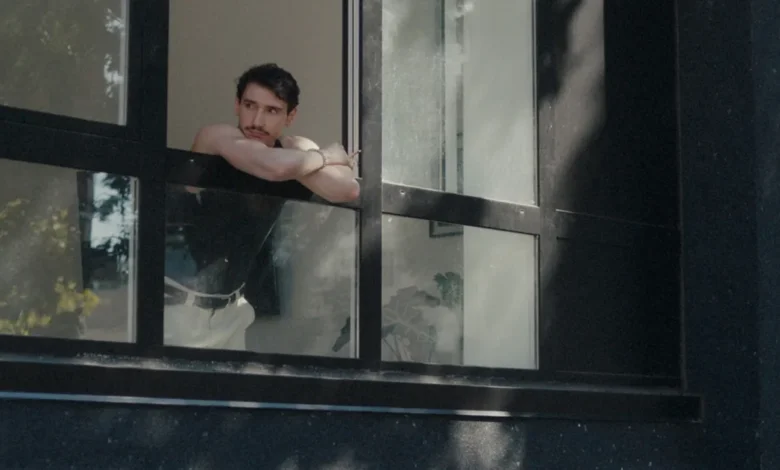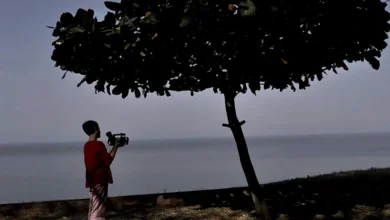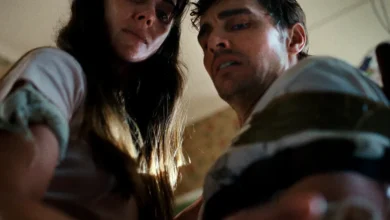

On April 15 of this year, ACID, the youngest and smallest of the parallel selections at Cannes, announced its lineup, which included Sepideh Farsi’s Put Your Soul on Your Hand and Walk, a portrait of the 25-year-old Palestinian photographer Fatima Hassouna and her work documenting the ongoing atrocities in her native Gaza. The next day, Hassouna was killed, along with 10 members of her family, when an Israeli airstrike targeted her home. Both ACID and Cannes released statements in response to her death; the difference between the two is illuminating. Cannes said that Hassouna and her family “were killed by a missile that hit their home,” and numbered among “the far too many victims of the violence that has engulfed the region.
The Programme Committee of ACID 2025, meanwhile, said that “an Israeli missile had targeted her home, killing Fatem and several members of her family,” making her “one more death added to the list of targeted journalists and photojournalists in Gaza, and at the time of writing, to the daily litany of victims who die under bombs, out of hunger, and because of politics of genocide that must be stopped and for which the Israeli far-right government must be held responsible.”
Get more Little White Lies
Cannes is, for better or worse, one of the defining bodies of contemporary institutional film culture, and letting individual filmmakers make political statements while assiduously pretending not to know what they’re saying is about the best we can hope for from institutional film culture at the moment. ACID’s tickets are available for booking through the Cannes website, but it is very much its own thing, even if, by programming Put Your Soul on Your Hand and Walk, it made Fatima Hassouna the festival’s business, and motivated Palme d’or jury president Juliette Binoche to devote a couple minutes of her remarks at the opening ceremony to the martyred journalist.
Founded in the early 1990s, “L’Association du cinéma indépendant pour sa diffusion,” the independent film association for its distribution, supports independent film in France and internationally through a number of festival and theatrical exhibition initiatives. Its selection at Cannes every year is selected by a programming committee of association members, and its selection, this year as every year, reflects the affirmative priorities of the film artists who make up the association. This year, that seems to mean films whose politics are embodied in their urgency and ambition, as well as indie-universalist humanism from filmmakers from different backgrounds.
Another documentary, Sylvain George’s Obscure Night – “Ain’t I a Child,” registers among of the former category. George embeds with migrant boys in Paris as they hang out all at night in large throngs late night below the Eiffel Tower, sleeping rough, scavenging for coins and cigarette butts, comparing trajectories through Europe’s bureaucracies and custodial systems, plans for papers and arrest histories. Two and three quarter hours long and the culmination of a three-part series, the film uses duration, particularly within distended bull sessions and peacocking fights, similar to the earlier works of Pedro Costa, and the frames are classical as Costa’s are, too, but differently so: the film is in magazine-glossy black and white, full of striking angles on famous landmarks and unfamous, acne-scarred faces, both made equally heroic.
Like Lance Oppenheim, George finds revealing moments all the more striking for being conveyed in a conspicuously cinematic language of continuity editing and striking compositions. Given the film’s rapport with youth exploring an urban environment, comparisons could also be made to author-subject collaborative films like Bill and Turner Ross’ Tchoupitoulas or Michal Marczak’s All These Sleepless Nights, here achieved in the service of moving lives from the margins of Europe to the looming foreground.
Source link




